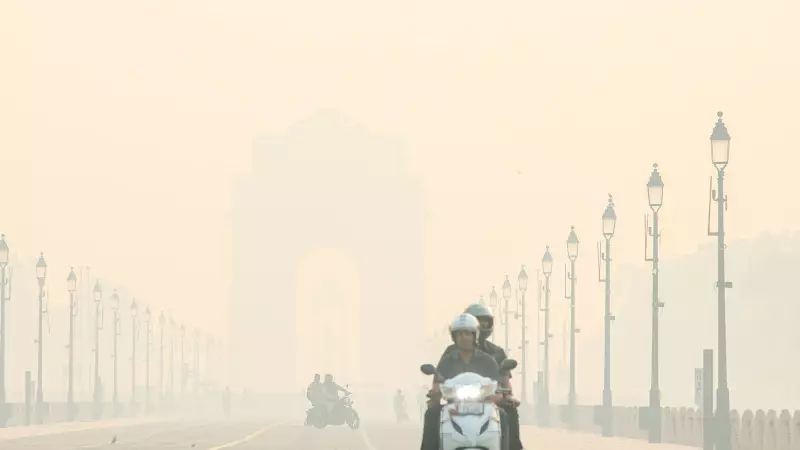
Delhi residents woke up to another day of hazardous air as the capital's air quality index (AQI) plunged into the 'very poor' category on Thursday morning, crossing the 300-mark and painting a grim picture of the winter pollution season ahead.
City Enveloped in Toxic Haze
The familiar grey blanket of smog returned to haunt Delhi-NCR, with monitoring stations across the region recording alarming pollution levels. According to the Central Pollution Control Board (CPCB), the overall AQI for Delhi stood at 309 at 7 am, firmly placing it in the 'very poor' zone that poses significant health risks to residents.
Regional Hotspots Emerge
Several areas within the National Capital Region reported even more concerning numbers. Noida recorded an AQI of 341, while Gurugram stood at 321, both indicating severely compromised air quality. The data reveals a widespread pollution crisis affecting millions across the urban landscape.
GRAP Measures Activated
In response to the deteriorating conditions, the Commission for Air Quality Management (CAQM) has enforced Stage-I of the Graded Response Action Plan (GRAP). This includes:
- Strict enforcement of pollution control norms at construction sites
- Enhanced public transportation services to reduce private vehicle usage
- Regular mechanized cleaning and water sprinkling on roads
- Monitoring of industrial emissions across the region
Weather Conditions Worsen Situation
The System of Air Quality and Weather Forecasting and Research (SAFAR) attributed the spike in pollution to calm wind conditions and low temperatures, which prevent the dispersion of pollutants. The meteorological factors have essentially trapped toxic particles close to the ground, creating a dangerous breathing environment.
Health Advisory Issued
Medical experts have cautioned residents, particularly those with respiratory conditions, to take necessary precautions. Doctors recommend limiting outdoor activities, especially during morning and evening hours when pollution concentrations peak. The use of N95 masks and air purifiers has been advised for vulnerable groups.
As Delhi braces for what experts predict could be one of the most polluted winters in recent years, the implementation of GRAP measures and public awareness remain crucial in mitigating the health impact of the ongoing air quality crisis.





